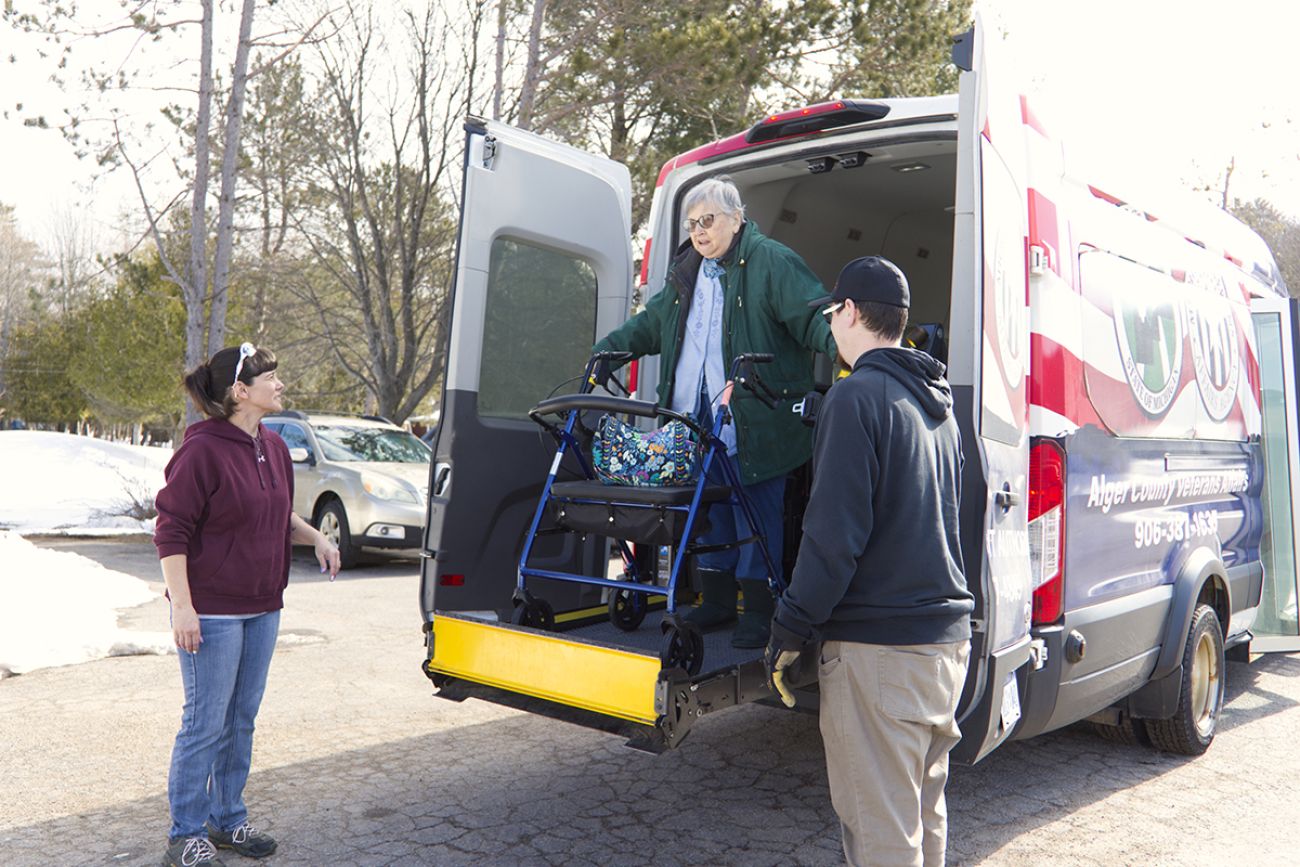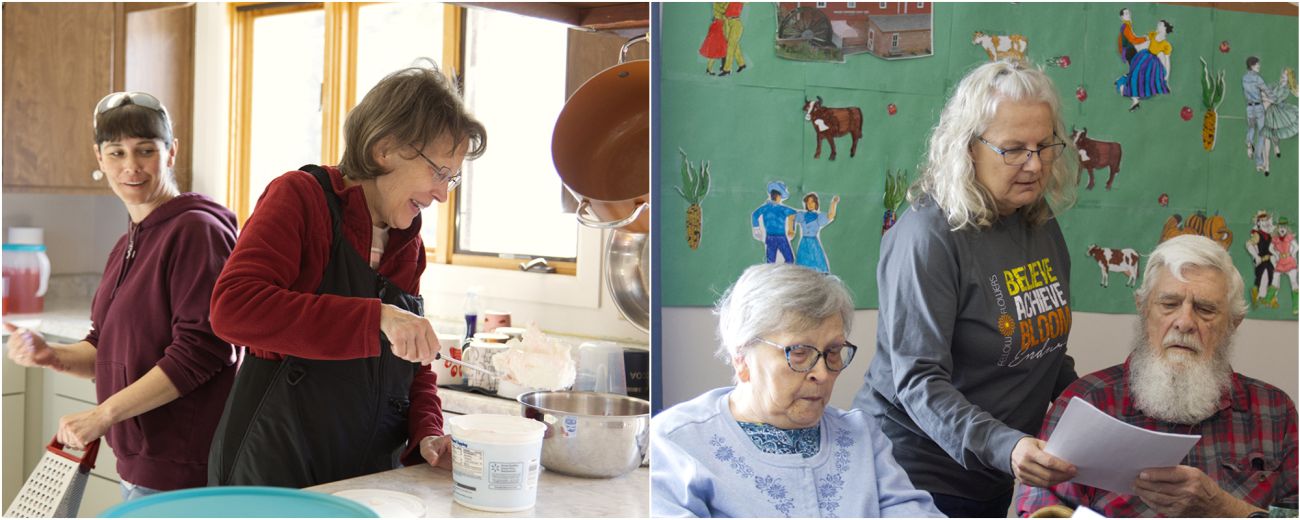Whitmer proposes more money for Michigan's aging crisis. Is it enough?

- Gov. Gretchen Whitmer’s proposed budget would increase spending on care for older residents by at least 2.6%
- Even with the increase, Michigan would be spending less on its seniors than the national average
- Advocates warn of an aging care crisis on the horizon
Michigan Gov. Gretchen Whitmer wants to boost state spending by at least $110 million to slow a looming crisis of care for the fast-growing population of older residents in Michigan.
The increase, which is part of the governor’s $84 billion spending plan for the 2025-26 fiscal year that begins Oct. 1, would represent a 2.6% increase over the $4.4 billion the state now spends on services ranging from home-delivered meals to nursing homes. Of that funding, $2.8 billion is federal funds funneled through the state, and $1.6 billion is state dollars
Both the Republican-controlled House and the Democrat-controlled Senate will release their own budget proposals in the coming months, and a final budget will be negotiated before October.
We want to hear from you
Bridge Michigan is writing about issues surrounding older residents in a state aging faster than most others.
What are the challenges ahead for you as you age or help care for an aging loved one? What are the best programs out there? How has your life changed as you move from career to retirement or family home to assisted living? Or maybe you’ve got an idea to help bridge the gaps in housing, transportation, health care and other services for older Michiganders.
Drop us a line at rerb@bridgemi.com.
Requests for comment on Whitmer’s senior services budget proposals from Republican leaders in the House and Senate were not returned.
A Whitmer spokesperson said the governor “has made it clear that she will work with anyone to keep connecting seniors with the care they need, ensuring everyone can live, work, and retire in our state.”
Advocates say Whitmer’s increase would be welcomed, but is not enough to address the needs in a state where almost 1 in 5 now are age 65 or older.
The $4.4 billion Michigan spends on senior care, while representing 5% of the total state budget, is less than the national average. Michigan spends $2,378 per resident age 65 and over, 39% less than the national average of $3,942.
That comes as Michigan faces a looming care crisis, with a disjointed system that despite costing taxpayers billions of dollars provides inadequate and unequal services, a Bridge investigation found. With an average of 380 Michiganders turning 65 each day, advocates warn the system is in dire need of more funding — and attention — from Lansing.
Lower-than-average funding may contribute to everything from wait lists for Meals on Wheels that can be as long as six months, to in-home worker shortages that force seniors to move into nursing homes earlier than they or their families would like.
Related:
- Crush of retirees a crisis in Michigan. State unprepared to meet their needs
- Experts: Michigan lawmakers should make 6 fixes to improve senior care
- Where to find help for Michigan seniors. A guide for navigating the maze
- How to plan for aging in Michigan or take care of others: What to know
- Whitmer’s $84B plan for Michigan schools, housing and more: What to know
- Unlocking the secrets of Michigan’s ‘superagers,’ who defy golden years
- Watch Bridge Lunch Break on the challenges of aging in Michigan
Whitmer extolled her administration’s efforts to improve care for seniors in a video released in conjunction with the publication of her budget proposal. A request to the governor’s office for comment on this story was not returned by time of publication.
Whitmer’s proposed senior spending “is an important step in the right direction, but also underscores how much more work lies ahead to truly meet the growing demands of our seniors,” said Laura Haynes, president of the Michigan HomeCare & Hospice Association. “Aging with dignity requires a full continuum of care, and Michigan must continue to focus on that future.”

According to administration statements and a budget analysis by Michael Daeschlein, long-term care specialist with the Michigan Elder Justice Initiative, major spending proposals in Whitmer’s budget include:
- A continuation of the $3.40 per hour pay supplement provided by the state for direct care workers, who make on average about $17 an hour. The supplement began during the pandemic with federal pandemic funds, and under Whitmer’s proposal will be continued when those federal funds expire this fall. While an exact cost wasn’t available, the supplement in the current budget was part of a $150.6 million increase in reimbursement rates for Medicaid services.
- $6.2 million for a wage increase for non-clinical direct care workers. Daeschlein said it is “not enough.”
“Low wages and no benefits mean we have a workforce crisis that limits the home care people can get.”
- $96 million in spending to expand Medicaid eligibility for "medically needy" residents, including seniors, by doing away with certain asset limits. The reform would lower a financial-eligibility barrier to thousands of Michiganders trying to qualify for services.
Medicaid currently requires elderly and disabled beneficiaries who earn more than 100% of the federal poverty limit to spend the majority of their income on health care costs each month in order to access Medicaid.
Under Whitmer’s proposal, those beneficiaries could qualify once their spending puts them back at 100% — $15,650 for a single person or $20,440 for a couple — which the administration says would “help keep more seniors in their homes and prevent individuals from spending down into poverty.”
- $2.9 million to expand the PACE program, which provides comprehensive medical, social and physical care for the frail and elderly population, by adding a total of 54 slots in Saginaw, Traverse City and Newaygo. Since October of 2019, the program has grown from serving 3,000 individuals to nearly 5,500 seniors today.
- $2.7 million to protect nursing home residents, supporting nine new positions to provide more timely and comprehensive oversight of Michigan’s 424 nursing homes and acute and continuing care facilities. This adds to $29 million already appropriated for nursing home oversight.
- $700,000 to enhance oversight of Homes for the Aged, which are assisted living centers that range from independent housing to services similar to nursing homes. The funds will support three additional positions to help with licensure issues for the state’s 342 state-licensed assisted living facilities, many of which are for seniors.
- $2 million to support services for Michiganders experiencing dementia. Daeschlein said “anything helps” but the funding is not nearly what is needed to address the issue. “Giving small amounts of money to local organizations to enhance care and run pilots is not going to address the big problem.”
See what new members are saying about why they donated to Bridge Michigan:
- “In order for this information to be accurate and unbiased it must be underwritten by its readers, not by special interests.” - Larry S.
- “Not many other media sources report on the topics Bridge does.” - Susan B.
- “Your journalism is outstanding and rare these days.” - Mark S.
If you want to ensure the future of nonpartisan, nonprofit Michigan journalism, please become a member today. You, too, will be asked why you donated and maybe we'll feature your quote next time!








